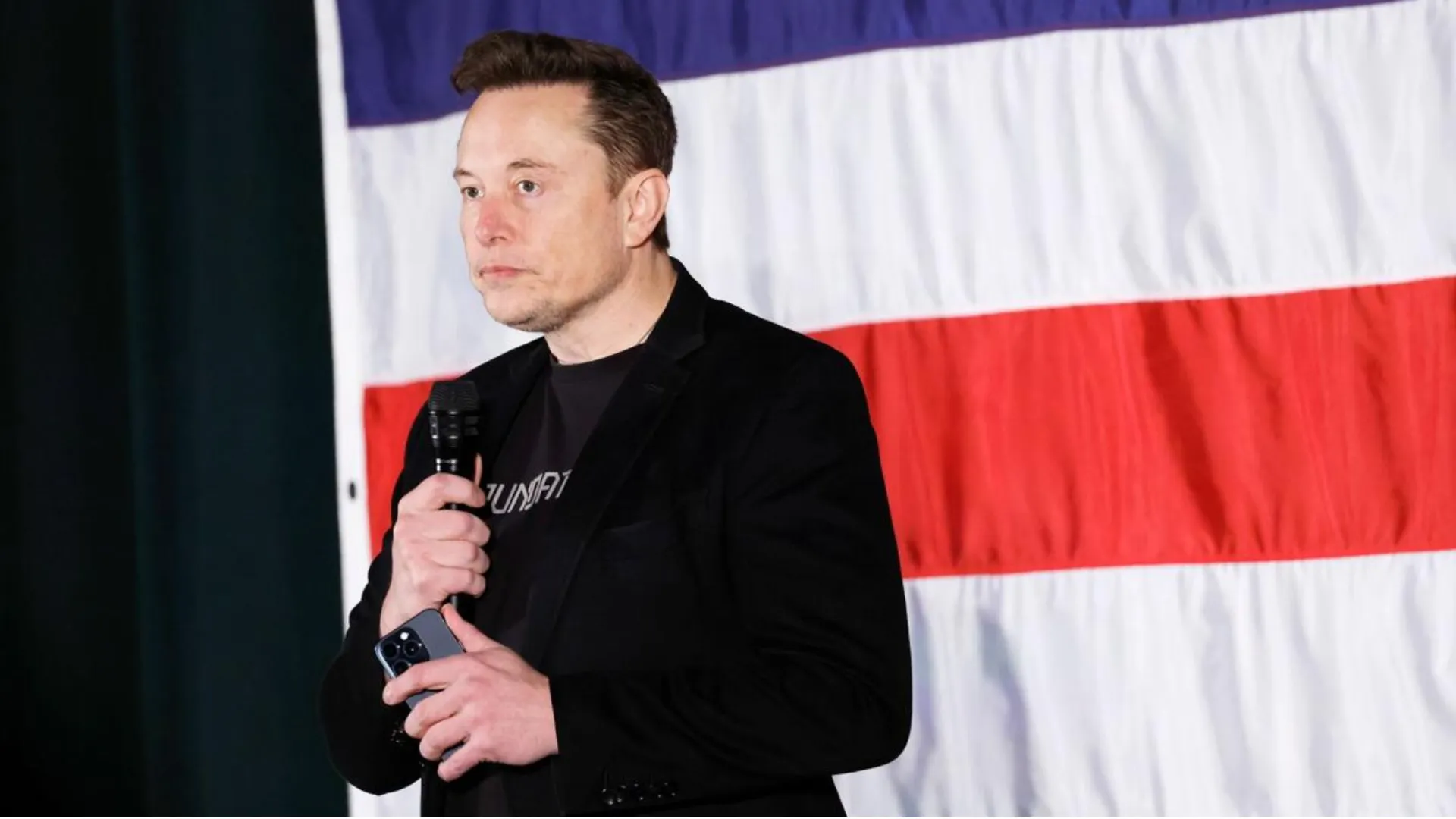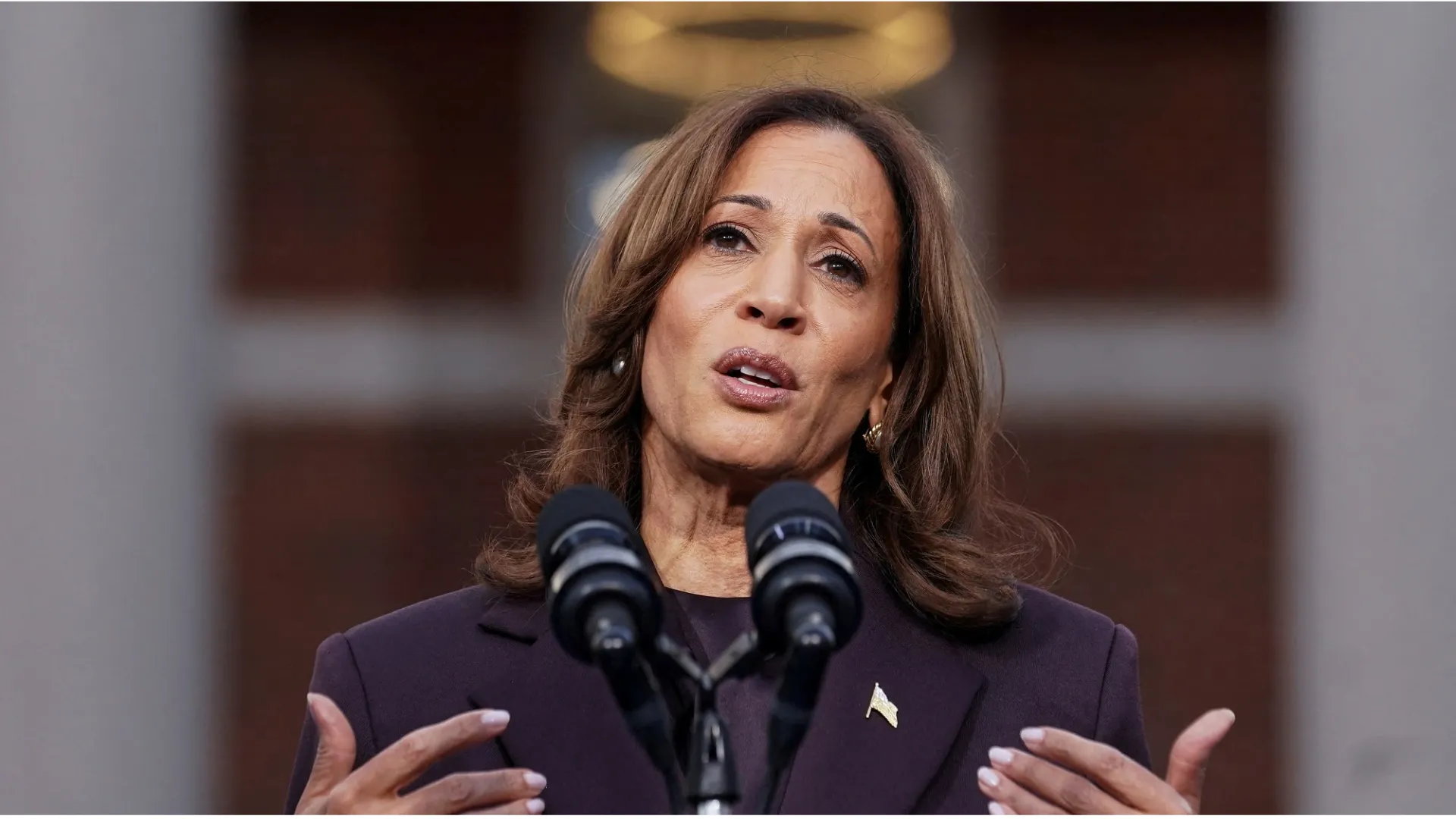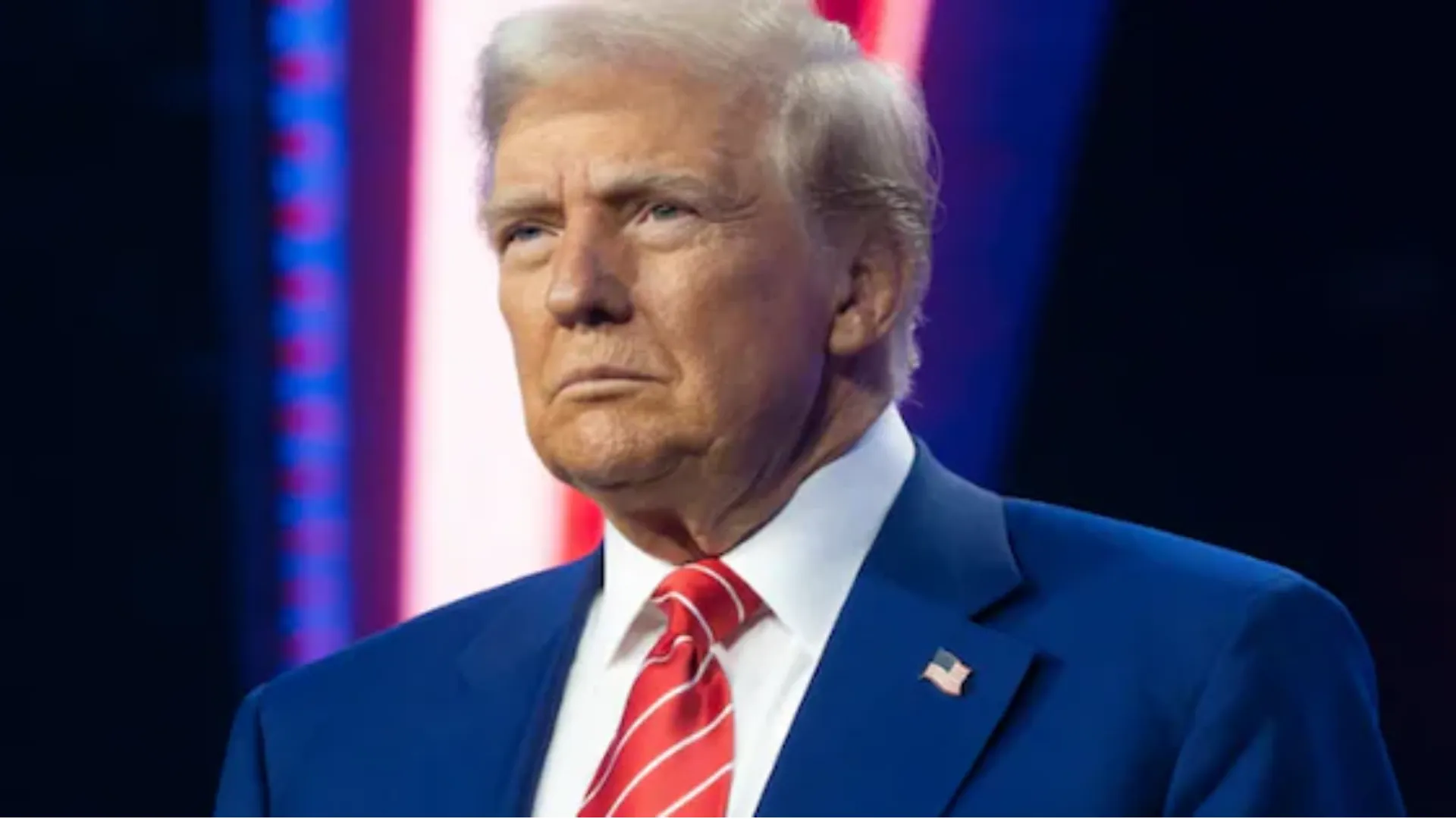President Donald Trump has expressed enthusiastic support for the idea of sending American citizens — not just foreign nationals — to El Salvador’s infamous “mega prison”, sparking widespread outrage and constitutional concerns across the political spectrum.
Speaking aboard Air Force One, Trump told reporters he “loved” the idea of deporting repeat offenders and violent criminals to El Salvador’s Terrorism Confinement Center (CECOT) — a prison internationally criticized for its harsh conditions, overcrowding, and lack of due process.
“If we could take some of our 20-time wise guys that push people into subways and hit people over the back of the head… if [Bukele] would take them, I would be honored to give them,” Trump said, adding: “I don’t know what the law says on that. I’m all for it.”
The remark followed reports that the Trump administration had already deported hundreds of detainees — including a U.S. permanent resident — to CECOT in March, despite a judge’s order blocking such transfers and ongoing legal challenges to the use of the 1798 Alien Enemies Act to justify the removals.
At the center of the controversy is Trump’s recent invocation of the Alien Enemies Act, a 227-year-old wartime law historically used to detain and deport foreign nationals during times of declared war.
The Trump administration claims the law grants broad presidential powers to remove suspected foreign threats — in this case, alleged members of the Venezuelan Tren de Aragua gang and MS-13.
But critics say Trump’s use of the law is unconstitutional, authoritarian, and unprecedented, especially as it has been used to justify the extrajudicial deportation of a lawful U.S. resident without a hearing, trial, or any due process.
And now, with Trump openly floating the idea of expanding those removals to include American citizens, legal experts warn the implications could be catastrophic for civil liberties.
The backlash came to a head after a U.S. District Court ordered the administration to return Kilmar Abrego Garcia, a Maryland resident arrested by ICE in March and transferred to CECOT despite no criminal charges or trial.
In a scathing legal opinion, Judge Paula Xinis called the deportation “wholly lawless” and ruled that Abrego Garcia must be returned to the U.S. immediately.
Xinis wrote that the administration had “seized [Garcia] without any lawful authority,” held him in three detention centers, failed to present him to an immigration judge, and shipped him to El Salvador “in direct contravention” of the Immigration and Nationality Act.
She added that the “risk of harm shocks the conscience.”
Despite that ruling, Trump doubled down on the idea. “If El Salvador can house these horrible criminals for a lot less money than it costs us, I’m all for it,” he said. “We have some horrible criminals, American grown and born.”
The administration says it reached a deal with El Salvador’s President Nayib Bukele, who has won praise from Trump for being “very tough on crime.” But no public documentation of the agreement exists.
“We literally know nothing about it,” wrote Aaron Reichlin-Melnick, senior fellow at the American Immigration Council. “Other than we’re paying them $6 million. No law in the United States authorizes us to pay another country to imprison people. And yet! They’re doing it.”
Human rights advocates say the partnership is dangerous, reckless, and deliberately opaque.
Setareh Ghandehari, advocacy director for the Detention Watch Network, said in a statement: “Trump and Bukele’s partnership deepens collaboration with authoritarian leaders, further jeopardizing democratic values in the U.S. and around the world.”
El Salvador’s CECOT super prison has become a global symbol of Bukele’s crackdown on crime. Designed to hold 40,000 people, the facility has been condemned by international observers for its harsh conditions, mass detentions, and suspension of civil rights.
Images from inside show inmates shackled, shirtless, and lined up in formation on concrete floors. Independent oversight is severely restricted, and critics say thousands of prisoners have been held without charges, trials, or access to attorneys.
Bukele has defended the prison as necessary to break gang control in El Salvador, but human rights groups have called it a state-sponsored abuse factory — and now, the Trump administration is effectively outsourcing American detention to it.
The idea of sending American citizens to a foreign prison with no due process sparked immediate fire.
Jon Favreau, former speechwriter for President Barack Obama, posted on X: “HE WANTS TO SEND AMERICAN CITIZENS TO A FOREIGN GULAG.”
Others warned that once the precedent is set, the government could justify extreme detentions for virtually anyone it deems dangerous — immigrant or not, charged or not.
“There’s no precedent, no law, no logic for this,” said a former Justice Department attorney. “It’s detention without trial in a foreign facility. That’s something we condemned other regimes for.”
Pressed on legal questions, Trump dismissed concerns. “I don’t worry about that,” he said, referring to due process and judicial oversight. “All they worry about is politics.”
Instead, he returned to his favorite talking points: blaming “bad judges,” “soft prosecutors,” and “radical Democrats” for what he calls “catch-and-release policies” that put dangerous criminals back on the streets.
“If we have somebody in jail 20 times who goes back and shoots people all over the place… I think if we could get El Salvador or somebody to take them, I’d be very happy,” he said.
Many legal observers and civil rights groups believe the policy — and Trump’s comments — are less about public safety and more about political spectacle.
“This is about headlines, not justice,” said one immigration lawyer. “It’s about looking tough, sounding brutal, and showing your base that you’re willing to ‘clean house’ no matter the law.”
Others say the strategy is an intimidation tactic, designed to send a message to immigrants, activists, and critics: we can send you away — and no one will stop us.
The Biden administration has remained largely silent on the matter, though several Democratic lawmakers have begun demanding an investigation into the legality of the El Salvador transfers.
Legal challenges are expected to pile up, especially if the administration attempts to expand deportations to include more U.S. residents or citizens. If so, courts may soon face one of the most significant constitutional cases of the decade.
Meanwhile, international human rights organizations are now monitoring the U.S.-El Salvador agreement closely, warning that it could set a dangerous global precedent for cross-border imprisonment without oversight.
Trump’s embrace of Bukele’s mega prison — and his eagerness to send American citizens there — has opened a new chapter in the administration’s war on immigration, justice, and democratic norms.

What began as a fringe idea — outsourcing detention to foreign authoritarian regimes — now has a budget, a handshake deal, and the full support of the president.
And all it took was a 227-year-old law, a plane, and zero regard for the Constitution.






